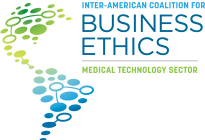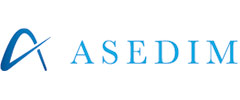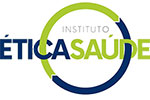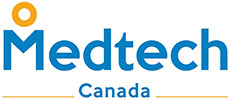
Please find downloadable versions of the Bogota Principles below:
Inter-American Coalition for Business Ethics in the Medical Technology Sector
The Bogotá Principles
Medical technology sector codes of business ethics promote ethical interactions between medical device and diagnostics developers, manufacturers, marketers (“Companies”), Third-Party Intermediaries[1], healthcare professionals (“HCPs”)[2], patients and patient organizations, and governments. Ethical interactions enhance patient access to the safe and effective use of medical technologies by ensuring appropriate training of HCPs by Companies. Ethical interactions also promote innovation and the ongoing development of advanced medical technologies through legitimate, appropriate, and transparent collaboration between HCPs and Companies to identify, develop, and bring to market new products. Further, ethical interactions facilitate open and transparent business environments free from the high costs of corruption, enhancing the ability of all Companies to participate and compete in global markets.
Ethical interactions ensure that medical decision-making is made in the best interest of the patient. To ensure that relationships meet this standard, interactions between Companies and HCPs should be conducted in accordance with the following principles: Patients First, Integrity, Independence, Appropriateness, Transparency, Advancement, Education, and Responsibility:
| Patients First means that Companies should prioritize the health and well-being of patients and other users of their products and technologies. Integrity means dealing transparently, honestly, truthfully, and fairly with all parties. Independence means that HCP interactions with Companies should not skew the HCP’s medical decision-making from the best interests of the patient. Appropriateness means that arrangements conform to proper and generally accepted commercial standards that are accurate and free from corrupt purposes. Transparency means that Companies and HCPs are open regarding significant financial relationships between the parties. Advancement means that relationships are intended to advance medical technology, innovation, and patient care. Education means that Companies deliver high-quality training and knowledge to help ensure that HCPs safely and effectively use medical technology. Responsibility means promoting a culture that supports social and ethical business practices, including protecting patients’ safety, rights, and privacy. |
Accordingly, medical technology industry codes of ethics (“Industry Codes”) should incorporate, but not necessarily be confined to, the following:
- Collaborative interactions between Companies and HCPs should preserve independent decision-making by HCPs and seek to enhance public confidence in the integrity of patient care, treatment, and product selection.
- Consultancy agreements between Companies and HCPs should be in writing and be for legitimate purposes, such as for the support of research and development to advance medical science, development of new technologies, improvement of existing products and services, or providing training and education in medical technology, with the objective of enhancing the quality and efficacy of care for patients. Any payments should reflect fair market value. Consultancy agreements must never be used as a means of inducement[3] to obtain, retain, or direct business or any other inappropriate or unlawful inducement.
- Company support of HCPs’ education, for example through support to third-party educational programs and educational grants, should preserve the independence of medical education and should not be used as a means of inducement to obtain, retain, or direct business or any other inappropriate or unlawful inducement.
- Companies may provide training of HCPs on product-specific device deployment, use, and application to facilitate the safe and effective use of medical technologies by HCPs. Company-provided training may consist of technical training programs that train on the technical features of a product, including its safe and effective use or educational programs that are intended to train HCPs on a multitude of topics such as disease state and treatment options.
- Companies may not provide gifts, including brand reminders, cultural courtesies, entertainment, or recreation to HCPs. Such benefits could be viewed as an inducement to obtain, retain, or direct business or some other inappropriate or unlawful inducement. In addition, the trust between Companies and HCPs, patients, and other stakeholders must be preserved, and the provision of benefits that could or could appear to compromise HCP independence must be avoided. Companies may provide modest, appropriate educational items or patient benefit items to HCPs. Any attendance at entertainment events, consenting or agreeing to receive gifts, commissions, or gratuities of any value shall not be regarded as appropriate for nurturing appropriate business relationships.
- Company donations for charitable or other philanthropic purposes should support bona fide charitable organizations and missions. Charitable donations must not be a means to benefit an HCP directly or indirectly or otherwise be used as an inducement to obtain, retain, or direct business or any other inappropriate or unlawful inducement.
- Free products should not be provided as an inducement to obtain, retain, or direct business or some other inappropriate or unlawful inducement. However, Companies may provide reasonable quantities of free products to HCPs for evaluation, demonstration, and training and education purposes. The provision of free products must be appropriately documented.
To ensure Industry Codes are effective, they should encourage adherence to the following principles of practice and governance, applied through a Compliance Program[4] or other polices, practices, and procedures that are relevant to the Company’s business:
- Companies to appoint a senior executive responsible for oversight and provide resources for the Company’s training and education on and compliance with the Industry Code.
- Companies to develop or adopt practical, useful, and meaningful policies, guidance, and tools on how to implement policies consistent with the Industry Code.
- Companies to provide effective and ongoing training, education, and communication to their employees and business partners on the Industry Code and the Company’s policies consistent with the Industry Code.
- Companies’ senior management and governing body, if applicable, commit to supporting the Industry Code.
- Companies to institute appropriate internal monitoring, testing, and auditing mechanisms to assess ongoing compliance with the Industry Code.
- Companies to create safe mechanisms for, and encourage, employees to raise concerns.
- Companies to communicate company policies consistent with the Industry Code to their Third-Party Intermediaries with the requirement that the intermediaries will comply with the Industry Code.
- Patient data shall be collected and used only in accordance with applicable legislation. The collection, provision, or use of such patient data shall not be used as a means of inducement to obtain, retain, or direct business or some other inappropriate or unlawful inducement.
- Companies will implement guidance in accordance with the APEC Guidance for Ethical Third-Party Intermediary Relationships in the Medical Device Sector.
- Books and Records: Companies shall make and keep books and records that accurately and completely reflect transactions with HCPs and government officials.
- Corrective Action: Companies shall respond promptly to detected problems and undertake corrective action.
To promote an ethical commercial environment, cooperation among multiple stakeholders is required. Ethical collaboration among key stakeholders can strengthen ethical business conduct, build trust, promote accountability, and improve patient outcomes. Ethical collaboration among medical device enterprises, their industry associations and third-party intermediaries, healthcare professionals and providers, patients’ organizations, health regulators, and other stakeholders is essential to the delivery of high-quality patient care, patient access to lifesaving and health-enhancing medical technologies, and the development of innovations that meet patient needs.
No one group can achieve an ethical environment in this sector alone. Ethical collaboration among these stakeholders strengthens the ability of small and medium enterprises (SMEs) to sustainably innovate, operate, and engage in cross-border trade.
Therefore, it is recommended that Coalition members respect local laws and regulations, encouraging and undertaking the following activities to promote an ethical commercial environment:
Medical Technology Sector
- Medical technology sector, including diagnostics, industry associations and their member companies, and business partners, to develop and implement Industry Codes consistent with the principles set out above and to consider publicizing those members who have signed onto the Industry Codes, among other steps, to encourage adoption of Industry Codes;
- Medical device sector regulators and anti-corruption enforcement authorities to endorse and support Industry Codes; and
- Work together to ensure that the above principles and Industry Codes remain relevant and effective to address new business arrangements that may emerge.
Healthcare Professionals
- HCPs, such as medical and academic institutions and physician groups, to develop and implement codes of ethics consistent with the above principles; and
- HCPs, and other health system actors with procurement responsibilities, to develop and make known clear, distinctive, accountable, and comprehensive policies on procurement processes and procedures in line with respective government policies on procurement and Industry Codes of ethics, if appropriate.
Government Authorities
- Government authorities to formulate and promote clear laws and regulations that are objectively applied;
- Government authorities to recognize the important role of Company and HCP interactions to promote the development of new technologies, to strengthen patient access, and to improve proper usage of medical devices;
- Medical technology sector regulators and/or anti-corruption enforcement authorities to promote, as appropriate, the adoption of Industry Codes, including through specific strategies that reward and incentivize code adoption;
- Promote government strategies to encourage ethical business conduct in six key areas:
- Convening Power: Bring stakeholders together, including through Consensus Frameworks;
- Procurement: Leverage the government’s purchasing power;
- Regulatory Practices: Promote ethical business conduct through the structure of government regulation;
- Enforcement Recognition and Incentives: Recognize and incentivize strong ethics and compliance;
- Government-Supported Business Ethics Training: Offer government-sponsored training and SME capacity-building for local industry;
- Trade Agreements: Leverage international trade commitments; and
- Government authorities to work to advance ethical collaborations consistent with the above principles regionally, through regular communication, joint policies, joint capacity building activities, and other forms of collaboration.
Guidance for Ethical Third-Party Sales and Marketing Intermediary (SMI) Relationships:
The Coalition encourages active collaboration within and among Companies, Third-Party SMIs, HCPs, and other governmental and non-governmental health system stakeholders in the development and implementation of codes of ethics and compliance programs. Considering a variety of risk-based factors, as well as international and local laws, such codes of ethics and compliance programs should include the following elements[5]:
- Written Anti-Bribery Policy/Procedure: Companies and Third Party SMIs should adopt and implement internal policies prohibiting all forms of bribery[6] by any person or entity acting on a Company’s behalf, including Company personnel, Third-Party SMI representatives, HCPs, and other agents. Such policies should include more detailed measures for common risk areas such as travel, gifts, hospitality, entertainment, grants or donations, research, and capital equipment. Medical device sector industry associations and their member companies should consider communicating to HCPs and other stakeholders their ethical business practices concerning Third-Party SMIs.
- Risk Assessment: Companies and Third Party SMIs should evaluate the risk profile for proposed and utilized Third-Party SMI arrangements including, for example:
- Companies: Should assess: (1) the local risk through published corruption indices as well as specific risk profiles of planned or utilized Third Party SMIs; (2) international and local legal requirements, (3) information from Third Party SMIs for potentially unusual arrangements, such as unusually high commissions, high degree of interaction with government officials, marketing budgets, health care provider corporate affiliation or ownership, and/or off-shore payment accounts, and (4) information available from public sources or employees for potential issues associated with a Third Party SMI.
- Third-Party SMIs: Should (1) support Companies’ risk assessments prior to and throughout engagement in activities conducted on the Company’s behalf, (2) assess and communicate international and local legal requirements, (3) disclose potentially unusual arrangements, and (4) maintain accurate records for review. The Risk Assessment can inform the application of other elements of this guidance.
- Diligence Program: Companies and Third-Party SMIs should establish a risk-based, pre-engagement and renewal due diligence program to identify, prevent, and mitigate risks relating to the market in which the Third-Party SMI is engaged to operate, as well as any specific activities the Third-Party SMI deploys on behalf of the Company. Third-Party SMIs are encouraged to engage with local industry associations to advance compliance and training on local code of ethics principles.
- Written Contract: Companies and Third-Party SMIs should reach contract terms with each other that include controls and implementation of anti-corruption policies, such as:
- Compliance with international and local laws, ethical principles, and Company policies;
- The ability to conduct independent audits and monitoring, including access to relevant books and records;
- The ability to terminate an engagement for failure to comply with international and local laws, ethical principles, and Company policies; and
- Diligence rights upon renewal.
- Training and Education: Companies and Third-Party SMIs should undertake initial and provide regular training and education for relevant Company and Third-Party SMI personnel on international and local laws, ethical principles, and Company policies. Training should be conducted in the language most appropriate to the audience. Medical device sector industry associations, their member companies, and Third-Party SMIs should consider joint communication and training with HCPs and other stakeholders on Third-Party SMI ethics guidance and relevant Company and Industry Association ethics policies.
- Monitor/Audit: Company and Third-Party SMIs should undertake risk-based, routine monitoring, auditing, and other assessments of their relationship for compliance with international and local laws, ethical principles, and Company policies as well as relevant contract terms, and regular certification of Company and Third-Party SMI personnel on compliance with on international and local laws, ethical principles, and Company policies.
- Appropriate Corrective Action: Corrective measures should be taken by the relevant party, consistent with applicable international and local laws, if either a Company or Third-Party SMI representative fails to comply with international and local laws, ethical principles, or Company policies, relevant contract terms, or engages in other impermissible or unethical conduct.
Implementation
Cooperation among multiple stakeholders is necessary to promote an ethical business environment consistent with this guidance. Therefore, medical device sector industry associations, Companies, Third-Party SMIs, HCPs, government authorities, and other stakeholders should consider:
- Implementing codes of ethics consistent with the principles set out above and additional steps to encourage the adoption of this guidance among their respective members and/or employees;
- Encouraging the development and implementation of high-standard, aligned policies and practices consistent with this guidance;
- Undertaking joint communication and training on this guidance and other relevant policies;
- Encouraging regulators and enforcement authorities to acknowledge and support this guidance set out above, and to support steps by stakeholders to implement effective guidance for ethical Third-Party SMI relationships; and
- Encouraging all stakeholders to advance ethical collaborations consistent with this guidance, through regular communication, joint policies, joint capacity building, and other forms of collaboration.
[1] The term “Third-Party Intermediaries” refers to third parties operating as distributors, wholesalers, distribution or sales agents, and/or independent sales representatives.
[2] The term “Healthcare Professionals” or “HCPs” includes those individuals and entities that purchase, lease, recommend, use, or arrange for the purchase or lease of, or prescribe Companies’ medical technology products. This includes both clinical and non-clinical individuals who make product-related decisions of the type described above. This is a broad definition, intended to encompass anyone with material influence over purchasing decisions. Note that there may be laws and other codes applicable to relationships with Healthcare Professionals, including relationships with government employees.
[3] “Inducement” means a remunerative arrangement intended to inappropriately influence an HCP’s medical decision-and product selection.
[4] A “Compliance Program” is a set of internal governance practices to comply with laws, rules, and regulations to uphold business reputation. Generally, an effective compliance program consists of the following elements: designating a compliance officer and compliance committee, implementing written policies and procedures, conducting training and education, setting effective lines of communication, conducting internal monitoring and auditing, enforcing policies through disciplinary guidelines, and detecting allegations and undertaking corrective action.
[5] Note: These elements are in addition to an overall compliance program. Where Companies, Industry Codes and other stakeholders already have or may in the future adopt more rigorous self-regulatory policies, nothing in this Guidance should be construed to diminish voluntary efforts to commit to a higher ethical objective.
[6] The term “bribery” refers to transfers of something of value to government officials, health care providers or others that may violate applicable international or local laws, ethical principles, and/or Company policies.
















